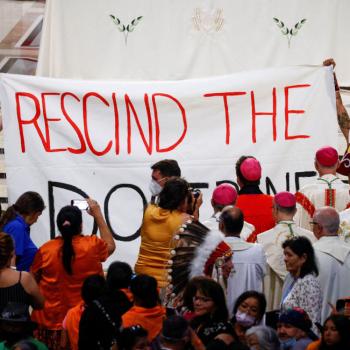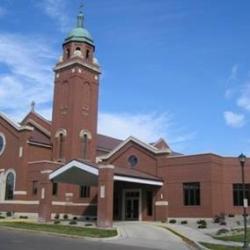 ‘As stewards of God’s creation, we are called to make the earth a beautiful garden for the human family.’ – Minnesota Catholic Conference Publication
‘As stewards of God’s creation, we are called to make the earth a beautiful garden for the human family.’ – Minnesota Catholic Conference Publication
Catholics at the Capitol saw over two thousand lobbying in St. Paul, Minnesota, for state house and senate bills that the Minnesota Catholic Conference deemed important. It was the second Catholics at the Capitol. The first was in February 2017.
We lobbied on two issues. A set of four house and senate bills focused on the theme “The First 1,000 Days of Life.” These bills aimed to support at-risk children and their mothers during the crucial first 1,000 days from conception to age two. Our second concern was to establish regulations for surrogate parenting to protect women from exploitation and safeguard children.
A different atmosphere at this Catholics at the Capitol
Having attended both Catholics at the Capitol gatherings, I felt a change in the political atmosphere. In 2017 it seemed to be a gathering at which a Democrat might not feel welcome. The issues themselves were appropriate, I thought; but it was Obama’s time in office. Opposition to his health-care policy was a palpable undercurrent. The discussion on assisted suicide with our representative included a mention of death panels. That’s a fiction, of course, and it wasn’t one of our designated “talking points.” As one who votes Democratic, I felt isolated. I come from a rural and conservative area so it’s possible that my experience was not typical.
Whether intentional or not, this year’s program seemed to go out of its way to welcome Democrats. Our morning preparatory session included a video presentation by Democratic Sen. Amy Klobuchar. She spoke — without mentioning abortion — on how her own agenda tied in with Church priorities. A “surprise” at the end was a visit by Minnesota’s Democratic Lieutenant Governor Peggy Flanagan. Both expressed gratitude for Catholics.
As much as the feeling of the first Catholics at the Capitol was anti-Obama, this year the agenda explicitly opposed many of Trump’s policies. I wonder if program leaders feel, as I do, that Donald Trump’s election was pro-life unfortunate turn.
A place for Laudato Si and care for our common home
Philadelphia Archbishop Chaput called political activism a demand of the Gospel. He said opposition to abortion is “part of social justice.” Singer Danielle Rose moved her audience with “How Can You Say There are Too Many Children.… It’s like saying there are too many flowers.” Bishop Donald Kettler of St. Cloud appealed for an “integral ecology,” one that combines nature and humanity. He talked about Pope Francis’ encyclical Laudato Si. The time calls for, he said, an “ecological conversion” and a “new dialogue on the future of the planet.”
Our packets included an attractive booklet, “Minnesota, Our Common Home.” It’s a new publication by the Minnesota Catholic Conference. Again the theme is “Integral Ecology: Everything is Connected.” It was more politically timid than it needed to be. Somehow it explored a “crisis of nature” with “human roots” without saying concretely what the crisis was. The “roots” were so deeply philosophical and theological that one couldn’t quite figure out how to extirpate them.
There was much in the pamphlet about ecological spirituality and stewardship, but I had to look hard for climate change. I finally found those two words, “climate change,” along with a back-handed apology for not discussing it. A footnote claimed “the profound way in which Laudato si speaks to … more general themes…” is obscured by too much discussion of climate change. Is “ecological conversion” without understanding the main ecological issue enough. I don’t think many will both read a footnote and go find an earlier bishops’ statement on climate change. There are Catholics who will benefit from “Minnesota, Our Common Home.” Most, I hope, would be looking for something more.
The issues
Catholics at the Capitol advocated for four bills on “The First 10,000 Days of Life.” We wanted programs for prenatal care to reduce health and infant mortality disparities in racial and ethnic groups. Another bill would require a study on breastfeeding disparities. A third would fund “evidence-based home visiting programs to families with young children.” The last would fund transportation for students who are pregnant or parenting so they can access parenting programs or get quality child care during education hours.
“Not for Rent, Not for Sale” expresses our second concern centering around the Surrogacy Abuse Prevention Act. It would, among other things,
- Prevent the exploitation of women and the commodification of children,
- Require a background check and mental health evaluation for gestational surrogates and intended parents,
- Forbid for-profit commercial surrogacy arrangements
- Protect the rights of children by allowing disclosure of the identity of the surrogate mother.
From my notes
- A representative from “Hands Across the Aisle” opposed extreme gender ideology. She said, “No child is born in the wrong body.” My thought: I don’t know for sur sure that such a thing has never happened, but how would one know that about one’s own body. Try to imagine criteria and all you’ll come up with are sexist notions about what being male or female is. She also decried child sterilization, which is what a sex-change procedure does.
- “Don’t withdraw into yourself as if you are already justified.” – From the Epistle of Barnabas quoted by one of the presenters.
- Familias Juntas is an organization that works with immigrants in Southwest Minnesota. Among their services, have been trips for citizen immigrant children to visit their grandparents in Central America. It’s a trip their non-citizen parents could not take.
- Amy Klobuchar wants to allow drivers licenses for Minnesotans “regardless of immigration status.” Other presenters also voiced support for immigrants fleeing violence or poverty.
- Keynote speaker Jim Caviezel said, since playing Jesus in “The Passion of the Christ,” he sees people with compassion as if from the vantage point of the cross. His mostly low-key presentation rose to a dramatic finish.











